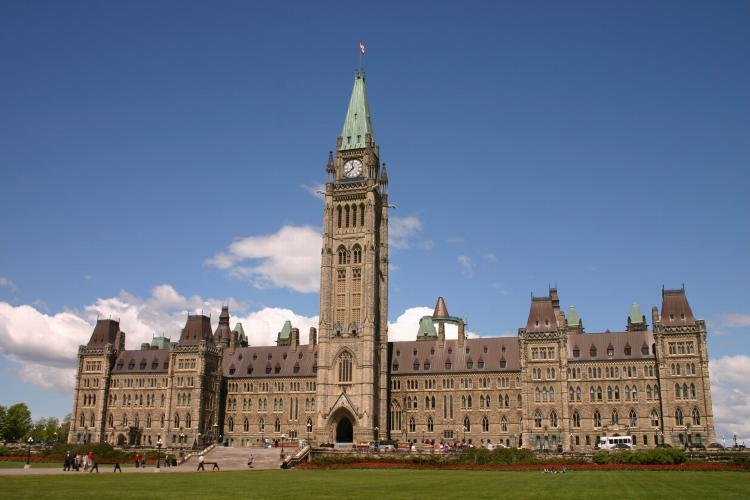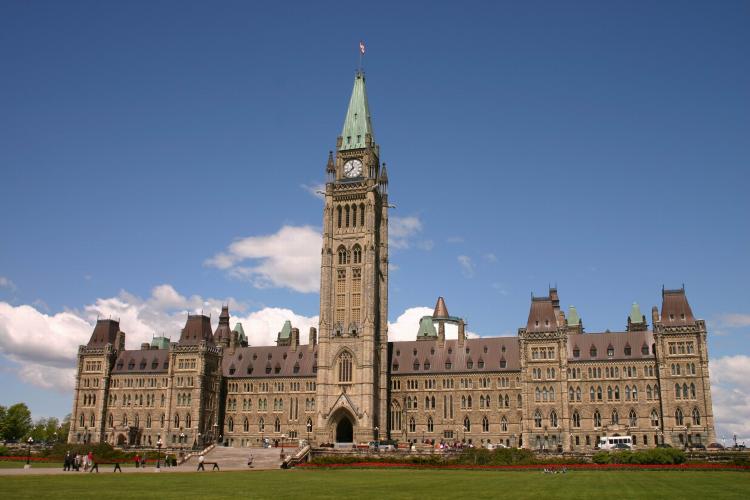OTTAWA—The jeers, insults, shouting, and vague, evasive answers that take place daily during parliamentary question period will soon be a thing of the past if Michael Chong has anything to do with it.
The backbench Conservative MP is optimistic that his motion to fix question period, which comes up for debate next Thursday, “can reform Parliament and make it relevant again.”
“I think behaviour in question period currently is abhorrent. I think that the level of decorum and behaviour needs to be elevated, and that’s what my motion is all about,” says Mr. Chong, MP for Wellington-Halton Hills, Ontario.
“The behaviour is terrible, and as a result, the level of debate is extremely low, and the issues that matter to Canadians are not being debated,” he says of the 45-minute parliamentary session when MPs have a chance to hold the government accountable.
“So instead of talking about the economy, environmental issues, the concerns Canadians have about their jobs, question period’s turned into a place where people try to score cheap political points.”
“Elevating decorum and fortifying the use of discipline by the Speaker to strengthen the dignity and authority of the House” is one of six changes Mr. Chong’s private member’s motion, M-517, proposes.
M-517 also suggests lengthening the amount of time for each question and each answer. The current 35-second limit is too short for meaningful discussion, and “people ask rhetorical questions and give rhetorical answers” as a result.
Another problem is that ministers can refuse to answer a question, or simply give the question to another minister. M-517 seeks to revisit this convention.
In addition, currently the Speaker can only allow MPs to ask a question who are on a list submitted by their party in advance. MPs can’t ask a question they think of during the discussion, and can’t ask any question unless they have approval from their party’s House leader and whip and have their name put on the list.
Mr. Chong suggests allocating half the questions each day for members whose names and order of recognition would be randomly selected.
He also proposes allocating Wednesdays exclusively for the prime minister to answer questions, following a similar model in place in the United Kingdom and other parliamentary governments.
Currently, the prime minister attends question period from Monday to Thursday and answers questions for about 10 minutes each day. Compressing it into one day would give him more time to attend to executive functions the other days.
Mr. Chong suggests using the rest of the week for other ministers to answer questions. It would be based on a rotational schedule that’s published and that requires ministers to be present two of the four days.
The backbench Conservative MP is optimistic that his motion to fix question period, which comes up for debate next Thursday, “can reform Parliament and make it relevant again.”
“I think behaviour in question period currently is abhorrent. I think that the level of decorum and behaviour needs to be elevated, and that’s what my motion is all about,” says Mr. Chong, MP for Wellington-Halton Hills, Ontario.
“The behaviour is terrible, and as a result, the level of debate is extremely low, and the issues that matter to Canadians are not being debated,” he says of the 45-minute parliamentary session when MPs have a chance to hold the government accountable.
“So instead of talking about the economy, environmental issues, the concerns Canadians have about their jobs, question period’s turned into a place where people try to score cheap political points.”
“Elevating decorum and fortifying the use of discipline by the Speaker to strengthen the dignity and authority of the House” is one of six changes Mr. Chong’s private member’s motion, M-517, proposes.
M-517 also suggests lengthening the amount of time for each question and each answer. The current 35-second limit is too short for meaningful discussion, and “people ask rhetorical questions and give rhetorical answers” as a result.
Another problem is that ministers can refuse to answer a question, or simply give the question to another minister. M-517 seeks to revisit this convention.
In addition, currently the Speaker can only allow MPs to ask a question who are on a list submitted by their party in advance. MPs can’t ask a question they think of during the discussion, and can’t ask any question unless they have approval from their party’s House leader and whip and have their name put on the list.
Mr. Chong suggests allocating half the questions each day for members whose names and order of recognition would be randomly selected.
He also proposes allocating Wednesdays exclusively for the prime minister to answer questions, following a similar model in place in the United Kingdom and other parliamentary governments.
Currently, the prime minister attends question period from Monday to Thursday and answers questions for about 10 minutes each day. Compressing it into one day would give him more time to attend to executive functions the other days.
Mr. Chong suggests using the rest of the week for other ministers to answer questions. It would be based on a rotational schedule that’s published and that requires ministers to be present two of the four days.






